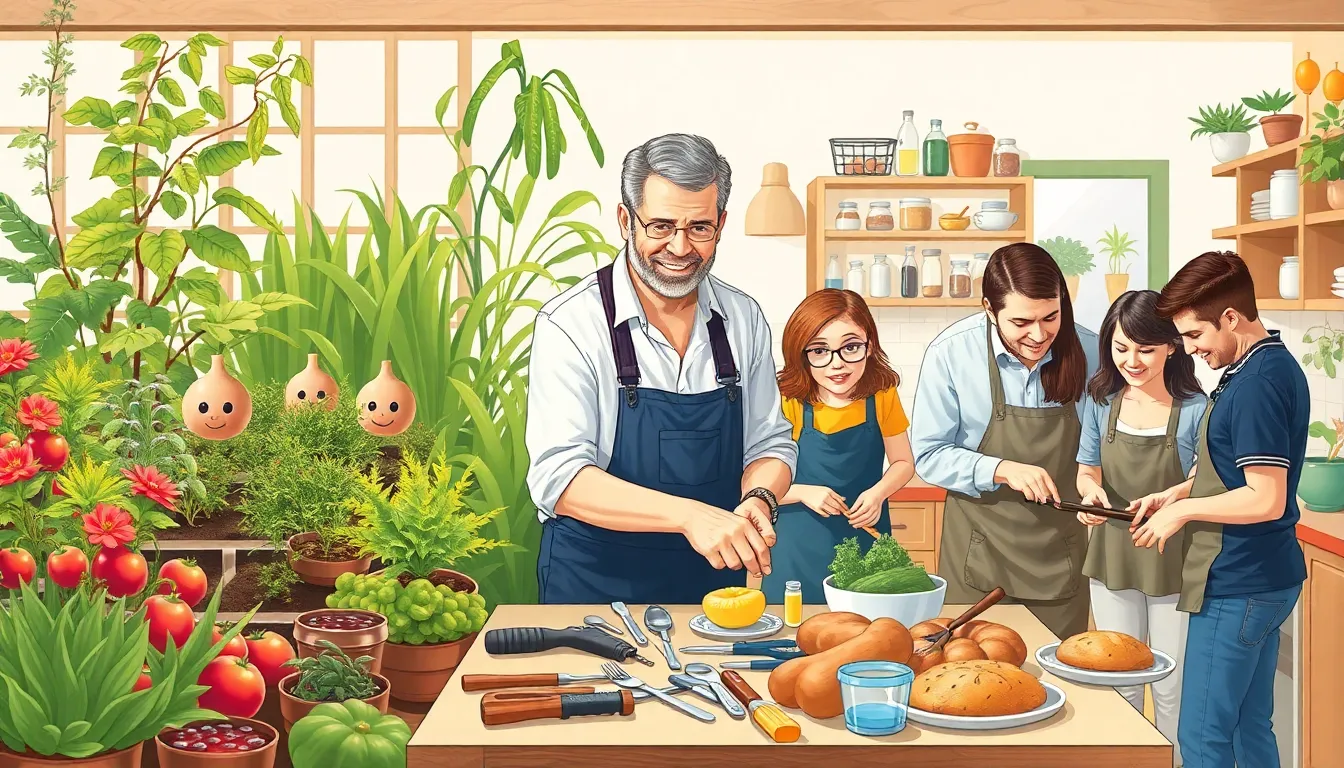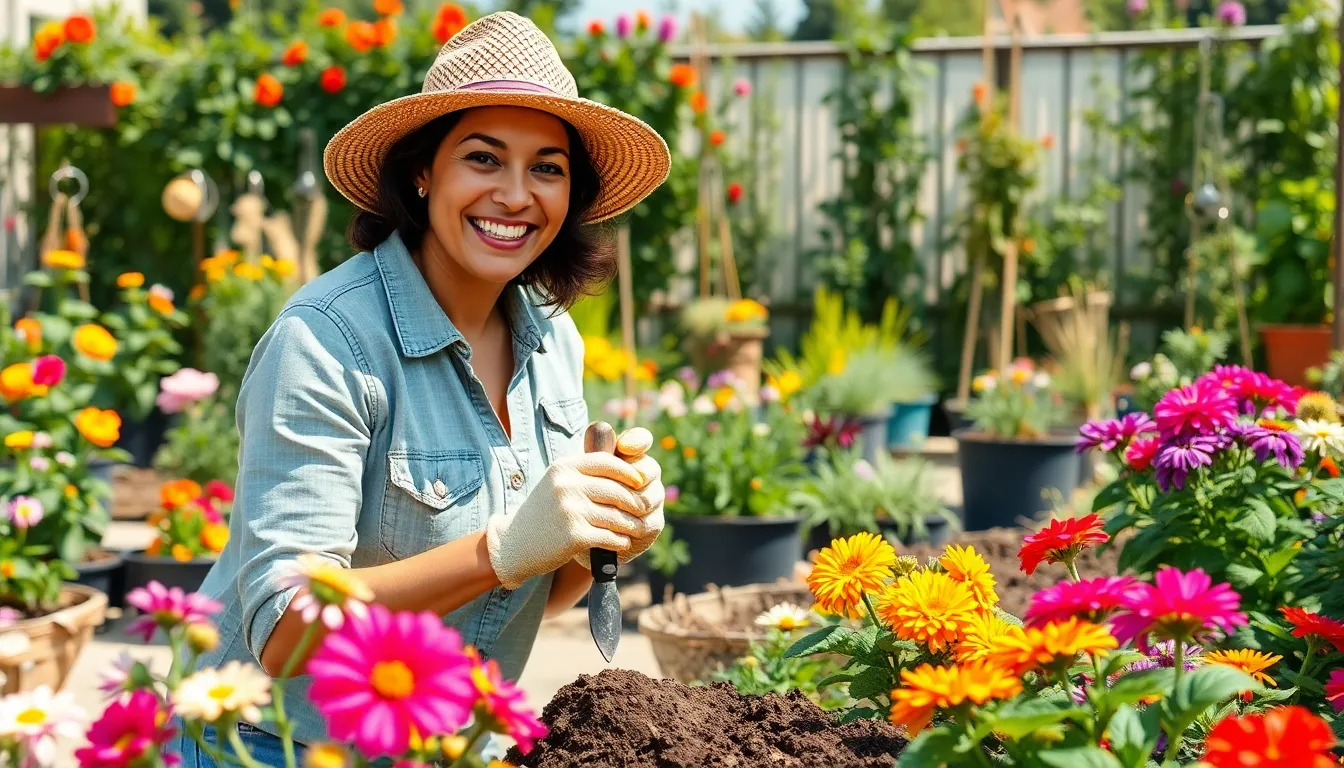Table of Contents
ToggleIn a world where binge-watching and sourdough baking have become the norm, a new trend is emerging: virus hobbies. These quirky pastimes are born from the chaos of a pandemic, transforming idle time into an opportunity for creativity and laughter. Who knew that learning to juggle while simultaneously perfecting the art of macramé could become the ultimate stress relief?
As people search for ways to stay entertained and sane, they’re diving headfirst into unusual activities that spark joy and a little bit of chaos. From competitive knitting to extreme home gardening, these hobbies not only provide a much-needed distraction but also foster a sense of community. So grab your supplies and get ready to explore the wild world of virus hobbies—because who wouldn’t want to turn a global crisis into a chance for fun and self-discovery?
What Are Virus Hobbies?
Virus hobbies refer to unconventional activities that emerged or gained prominence during the COVID-19 pandemic. These hobbies serve as creative outlets and ways to cope with heightened stress levels. Anecdotal evidence suggests that individuals turned to unique pastimes like competitive knitting, where knitters challenge each other to create intricate patterns quickly, and extreme home gardening, which involves growing rare plants or starting urban farms.
Participants in these hobbies often seek community and connection. Many share their creative projects on social media platforms, fostering interaction and collaboration. Engaging in such activities not only alleviates boredom but also cultivates new skills and interests.
Studies indicate that adopting these hobbies can enhance mental well-being. Leverage the benefits of mindfulness and productivity that often accompany creative pursuits. People report feeling a sense of accomplishment and joy from mastering their chosen activity.
The wide variety of virus hobbies reflects diverse interests. Individuals may choose to try their hands at baking sourdough bread, learning a musical instrument, or even starting DIY home improvement projects. Many enthusiasts encourage others to join in, which leads to increased participation and community building.
Recognition of these hobbies has prompted businesses to adapt. Increased sales of gardening supplies, craft kits, and baking ingredients demonstrate the shift in consumer behavior. Retailers have noted a remarkable rise in demand for unconventional hobbies, highlighting their significance in today’s culture.
Popular Types of Virus Hobbies

Virus hobbies encompass a variety of activities that allow individuals to express creativity and foster connections during challenging times. The following popular interests exemplify how people find joy and relaxation through unique pastimes.
Gardening and Plant Care
Gardening has surged in popularity as individuals cultivate their green thumbs. Many turn to planting flowers, vegetables, and herbs, transforming outdoor spaces into vibrant retreats. Some embrace indoor gardening, nurturing houseplants that improve air quality and add aesthetic appeal. Engaging in gardening promotes mindfulness and provides a sense of accomplishment when seeing plants thrive. Community gardening projects also encourage interaction among neighbors, strengthening local connections.
DIY Projects and Crafts
DIY projects attract many seeking to unleash their creativity. Crafting, home improvement, and upcycling have gained traction as individuals explore hands-on activities. People often create home décor, personalized gifts, and functional furniture, resulting in unique, one-of-a-kind items. Engaging in these projects fosters problem-solving skills and provides a fulfilling outlet for self-expression. Additionally, social media platforms showcase tutorials and ideas, inspiring collaboration and sharing within vibrant crafting communities.
Cooking and Baking
Cooking and baking became essential virus hobbies as individuals sought comfort in food. Many have experimented with new recipes, from gourmet meals to creative desserts. Sourdough bread, for example, captured the attention of many home bakers, who pursued the art of bread-making. This hobby not only satisfies culinary cravings but also encourages sharing finished dishes and recipes with family and friends. Home-cooked meals foster connection, as virtual dinner parties and recipe exchanges become frequent social events.
The Impact of Virus Hobbies
Virus hobbies significantly influence individuals’ lives, particularly regarding mental health and social connections. Engaging in these activities fosters creativity and encourages a sense of community.
Mental Health Benefits
Engagement in virus hobbies promotes mental well-being. Participants often report reduced stress levels as they immerse themselves in enjoyable projects. Mastering new skills enhances feelings of accomplishment, contributing to increased self-esteem. Knitting, gardening, and cooking create meditative experiences, offering a break from daily pressures. Research indicates that hobbies can combat anxiety and depression, thereby improving overall emotional health. As individuals share their creative endeavors on social media, they experience a sense of connection, reinforcing the positive impact of these activities.
Social Connections and Community
Pursuing virus hobbies often leads to strengthened social ties. Many individuals share their projects online, creating virtual communities that foster collaboration. Community gardening initiatives bring neighbors together, encouraging teamwork and shared resources. Cooking and baking invite social interaction through virtual gatherings and recipe swaps, allowing people to connect over food. Crafting projects offer opportunities for shared experiences, resulting in new friendships and support networks. Businesses have also adapted to this trend, offering products that facilitate these connections, highlighting the vital role of virus hobbies in enhancing community engagement.
Tips for Starting Your Own Virus Hobby
Starting a virus hobby enriches experiences and promotes well-being. Selecting a hobby that resonates with personal interests kickstarts this journey.
Choosing the Right Hobby
Identify specific interests first. Gardening appeals to nature lovers, while DIY projects attract creative minds. Exploring various activities allows for discovery of unique passions. It’s valuable to consider the time commitment each hobby requires, as some need consistency for growth or mastery. Review social media platforms for inspiration. Notable trends emerge frequently, showcasing exciting ways to engage. Joining niche groups enhances the experience, providing support and camaraderie.
Finding Resources and Communities
Utilize online platforms to access various resources. Websites dedicated to specific hobbies offer guides, tutorials, and forums. Local community centers often provide workshops or classes aimed at beginners. Search for Facebook groups or Reddit communities that align with particular interests. Engaging with others facilitates knowledge sharing and skill development. Participating in local events strengthens bonds within the hobbyist community. Whether in-person meetups or virtual gatherings, connections formed enhance the overall experience.
Virus hobbies have transformed the way individuals cope with challenges and find joy in creative expression. These unique pastimes not only provide entertainment but also foster community connections and enhance mental well-being. As people continue to explore gardening, DIY projects, and cooking, they discover new passions that enrich their lives.
Embracing these hobbies can lead to personal growth and improved emotional health. By sharing experiences and projects online, hobbyists build supportive networks that thrive on collaboration. The journey of engaging in virus hobbies is about more than just the activities themselves; it’s about the connections made and the joy found along the way.


